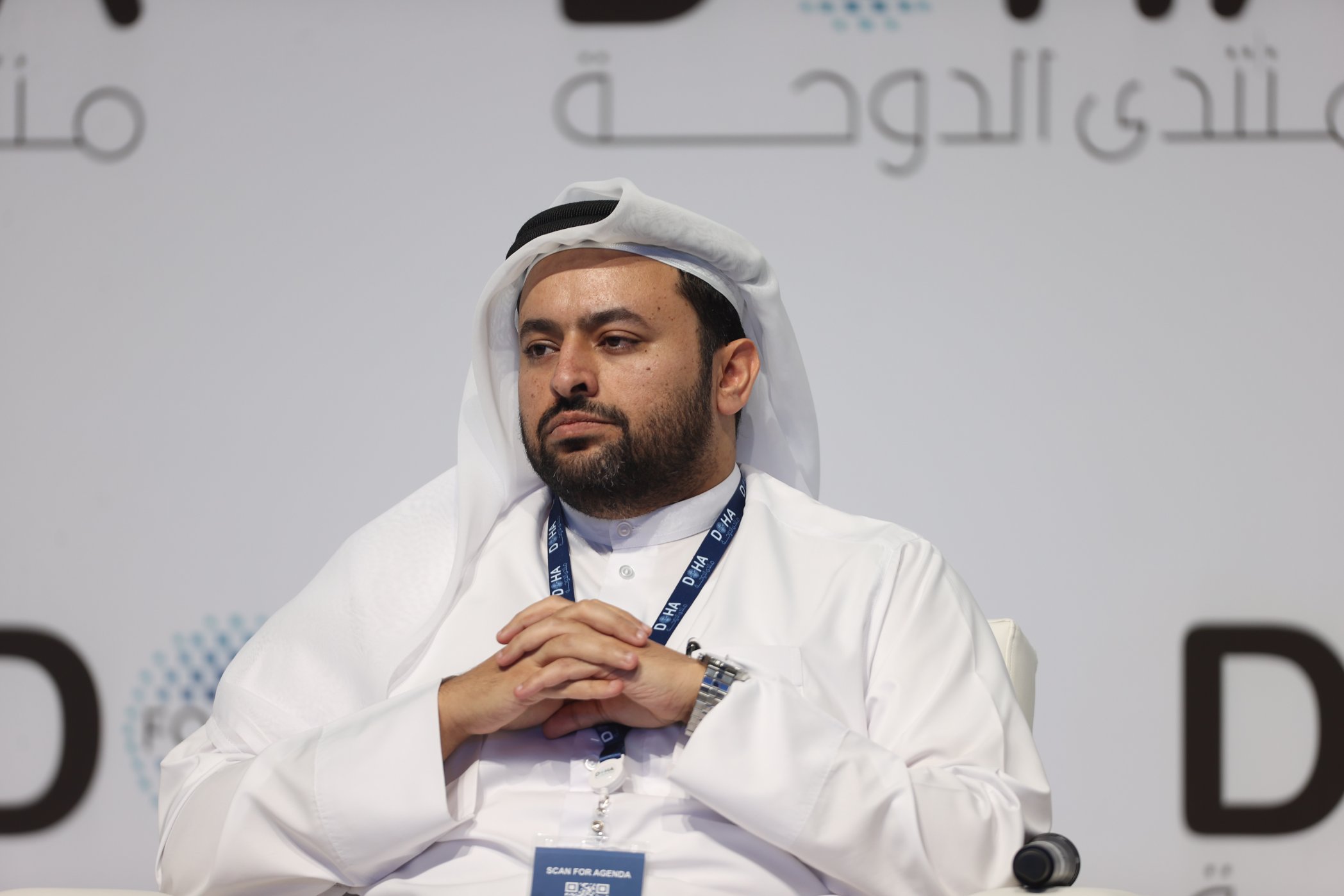Qatar’s diplomatic efforts have been successful in other geopolitical situations, such as between the U.S. and Venezuela on December 21.
Qatar’s efforts with the Quintet Group to break Lebanon’s political deadlock will continue during the next stage, as mediation between the United States and Venezuela was ongoing, Doha’s Minister of State for Foreign Affairs, Mohammed Al-Khulaifi, told Beirut’s Al Modon on Sunday.
The interview with Al-Khulaifi centred on the Gulf state’s multiple mediation efforts in critical files across the world, with all eyes on the geographically small yet powerful country in light of its current diplomatic efforts in Gaza.
Lebanon’s presidential impasse has remained among the most important issues for Qatar. More movement was seen last year when Al-Khulaifi met with Lebanese officials from different parties in Beirut as part of an “exploratory visit” amid the ongoing crisis.
“Qatar seeks, with its international partners, to overcome the state of political paralysis and confront the economic crisis in Lebanon, support efforts that strengthen its unity and stability, and achieve the aspirations of its people for development and progress,” Al-Khulaifi said.
He noted that Qatar will work “to bring viewpoints closer together to find a way out that will help resolve the crisis,” stressing that the solution “must come from the Lebanese themselves”.
Qatar is part of a quintet group formed in 2023 under an initiative led by French Presidential Envoy for Lebanon Jean-Yves Le Drian in hopes of filling the country’s presidency seat, since former president Michel Aoun left office in October 2022.
The group includes Qatar, Saudi Arabia, Egypt, the U.S., and France.
The group had first convened in Paris in February 2023 and held their second meeting in Doha on July 17, where the five members discussed “concrete options with respect to implementing measures against those who are blocking progress” in the election of a president.
“The work is still continuing and our efforts to bring viewpoints closer between the various parties are still ongoing, despite the many preoccupations with regional and international issues,” Al-Khulaifi said.
The crisis-stricken country has failed to elect a president at least 12 times as it faces a deep division between Lebanon’s political parties, with each side pushing for its own preferred candidate.
There have been several names on the table among Lebanese politicians, including Army Commander Gen. Joseph Aoun, and Suleiman Frangieh, who is Hezbollah’s preferred candidate.
Speaking to Al-Modon, Al-Khualifi stressed that Qatar does not have a preferred candidate “as this is an internal Lebanese matter, and the first and last decision is for the Lebanese themselves.”
“Qatar will welcome anyone chosen by the Lebanese society to enter an important stage of development and reform in the country and Qatar will not hesitate to provide a helping hand to the Lebanese brothers to reach stability and prosperity,” he added.
Breaking Lebanon’s political impasse is imperative to resolving the country’s economic crisis, the worst since the 1975 Lebanese civil war. The 2020 Beirut Port Explosion coupled with the COVID-19 outbreak contributed to the country’s worst economic downfall.
The Lebanese pound reached a record low value this year, losing about 97% of its value to the U.S. dollar.
Israel and Hezbollah have been exchanging fire in the south of Lebanon since the beginning of the Israeli aggression on Gaza on October 7, triggering fears of another war in Beirut. The Lebanese government discussed an emergency plan on October 31 should a full-scale war break out.
U.S.-Venezuela mediation
Qatar’s diplomatic efforts have been successful in other geopolitical situations, such as between the U.S. and Venezuela on December 21.
The Gulf state’s mediation brought about an exchange of 11 prisoners, marking the largest release of U.S. prisoners in Venezuela’s history, according to the Associated Press.
The deal included the release of 10 American prisoners in exchange for one Venezuelan prisoner – Alex Saab, a close ally of President Nicolas Maduro. The Venezuelan president had received Saab and his family upon their arrival after he spent three years in prison in Miami.
American prosecutors accused Saab of funnelling around $350 million from Venezuela through the U.S. Maduro maintained that Saab was wrongfully detained.
Al-Khulaifi said that Doha had received an official mediation request from Washington and Venezuela “to resolve a number of existing disputes between them.”
He described the Qatar-mediated deal as a move that falls “within a broader mediation to address the outstanding issues between the two countries, as the task is not over yet”.
“It should be noted that the State of Qatar’s efforts, which facilitated the talks between the Venezuelan authorities and American officials, will pave the way, and take important and tangible steps, towards implementing the electoral road map agreement in Venezuela for this year,” he explained.
Tensions had soared between the two countries after the former U.S. President Donald Trump imposed crippling sanctions on the South American country.
In 2019, Maduro severed diplomatic ties with the U.S. after it recognised opposition leader Juan Guaido as the interim president. Notably, relations between the U.S. and Venezuela have appeared to gradually shift in recent months under President Joe Biden’s administration.
On October 18, the Biden administration eased sanctions on Venezuela’s oil sector following a deal between the Venezuelan government and opposition parties for the 2024 elections.
Responding to Qatar’s efforts in reaching an election road map in Venezuela, Al-Khulaifi said he cannot provide details on the matter as the negotiations are ongoing.
“What I would like to emphasise in this regard is that the State of Qatar is making unremitting efforts to enhance security and peace in the region and the world, and will always work through bilateral and multilateral cooperation for a world of peace, progress and prosperity,” he said.







